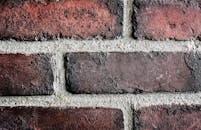Mortars are mixtures of sand and binding materials, usually used for making joints in stones and bricks. (Sometime for other purpose too)
Definition of mortar:
- It is a mixture or homogenous paste obtained by mixing fine aggregates such as sand and binding material such as a cement.
- For examples, Pyramids of Egypt, have been build with different types of mortar such as lime mortar, clay-gypsum mortar and gypsum lime mortar.
- The strength, safety and durability of structure is depending on the quality of mortar used.
Ingredients:
- Binding Material (Lime, Cement etc)
- Sand
- Water
Functions:
Mortar in construction is mainly used for following purposes,
- Masonary construction
- Plastering
- Pointing
- Grouting
Rather that this, mortar is also used for some secondary purposes as explain below,
- Binding stone or bricks together. (providing bond to bricks in masonary)
- Offering cohesion force between structural elements.
- Transfer and distribution of load in masonry by joint actions.
- Providing resistance against weathering Impact In case of pointing)
- Filling the joints and grouts in masonary with help of mortar.
- Providing strength and stability to structure

Properties Of Good Mortar:
Adhesive Properties:
- This property offers strong bond between stones or bricks and helps masonary to resist the force action.
Waterproof:
- Good mortar should be waterproof and should restrict the water to enter through it to prevent penetration of water to structural elements from outside.
Durable:
- Mortar should be durable and last long through out the life of structure. Also it should able to with stand the continuous action of wear and tear.
Workability:
- Mortar should be workable that means it should be easy to handle with segregation and bleeding.
Strength:
- Mortar should possess the good strength and should developed the designed stresses after hardening.
- Strength is important factor for mortar as all the joineries in the masonary are depend on the mortar it self.
No Cracks:
- Mortar should not have any cracks after post gardening. To maintain the no cracks situation workability of mortar and constituents of mortar should be maintaining.
- Also, the care also taken to avoid cracks due temperature, shrinkage and deformation in structure.
- Also, by maintaining no cracks policy the durability and strength of mortar can be increased.
- It also helps to form better bonds in masonary. Cracks in masonary can decrease the life, strength and durability of masonary.
Less Setting Time:
- Setting time plays important role in mortar. Less setting time means mortar will set in less time. And good mortar should have less setting time, so that mortar can set quickly.

